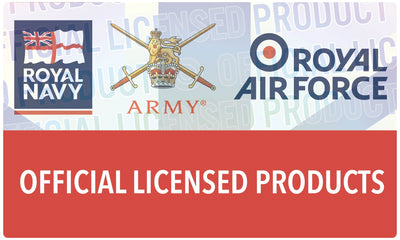
The integrated review - What you need to know.
What is the integrated review?
Published on the 16th March 2021, The Integrated Review is a comprehensive articulation of the UK’s national security and international policy. It outlines three fundamental national interests that bind together the citizens of the UK – sovereignty, security and prosperity – alongside our values of democracy and a commitment to universal human rights, the rule of law, freedom of speech and faith, and equality.
The armed forces
In his foreword, the Prime minister announces that HMS Queen Elizabeth will lead a British and allied task group on the UK’s most ambitious deployment for 2 decades, visiting the Mediterranean, the Middle East and the Indo-Pacific. This hopes to strengthen relationships with allied nations and show strength in the geo-political landscape.
Answering questions on reductions of the armed forces by 10,000 Mr Johnson said “There’ll be no redundancies across the Armed forces. The Army, including reserves will be over 100,000.” He has, however, stated that “it is the duty of this government to make tough decisions that are necessary to modernise our armed forces.” Plans to reduce the amount of troops to 70,000 will happen as service people leave the military, not through redundancies.
Investment and the nuclear programme.
A further £16.5bn will be made available for defence over the next 4 years, with a keen focus on R&D. Cyber threats and space have both been referenced as future battlefields that require development.
“But increasing commercial and military use of space will make it an important sphere of competition; there will be considerable risks to strategic stability if this is not managed and regulated effectively.”
This comes alongside a commitment to increase the UK’s nuclear programme, increasing warheads available to 260, contrary to plans to reduce the stockpile to 180. The change of direction comes as the review states "a minimum, credible, independent nuclear deterrent" remains “essential in order to guarantee our security". The review concludes that given the “developing range of technological and doctrinal threats now is not the time to lower the overall stockpile of nuclear warheads.”
“We will create armed forces that are both prepared for warfighting and more persistently engaged worldwide through forward deployment, training, capacity-building and education. They will have full-spectrum capabilities – embracing the newer domains of cyberspace and space and developing high-tech capabilities in other domains, such as the Future Combat Air System.”
The report also predicts there is a “realistic possibility” that a terrorist group will launch a successful chemical, biological, radiological or nuclear attack by 2030.
Investment of at least £6.6 Billion of defence funding in advanced and next generation research & development has been announced to “deliver an enduring military edge in areas including space, directed energy weapons, and advanced high-speed missiles.”
Threats and alliance.
China
The review recognises Chinas’ increasing power with improvements in Geo-economic position, technological advances as well as their assertiveness internationally. It would appear China is a key player in the decision to tilt focus to the Indo-Pacific.
“This is a context defined by: geopolitical and geoeconomic shifts, such as China’s increasing international assertiveness and the growing importance of the Indo-Pacific; systemic competition, including between states, and between democratic and authoritarian values and systems of government; rapid technological change; and transnational challenges, such as climate change, biosecurity risks, terrorism and SOC.”
Russia
Russia still remains the most active military threat within Europe and the UK will look to work with the US and European allies to share the burden of collective security. The UK is the leading European ally in NATO working to deter nuclear, conventional and hybrid threats from Russia, the UK will continue to exceed the NATO guideline of 2% of GDP indicating a clear recognition of the threat.
“Strengthening security and defence at home and overseas: we will work with allies and partners to address challenges to our security in the physical world and online. NATO will remain the foundation of collective security in our home region of the Euro-Atlantic, where Russia remains the most acute threat to our security. We will also place greater emphasis on building our capacity and that of like-minded nations around the world in responding to a growing range of transnational state threats, radicalisation and terrorism, SOC and weapons proliferation.”
The need for allies is clear, recognising that the threats of tomorrow cannot be beaten alone. The UK is looking to lead by example on the global stage as well as pursuing a deeper engagement in the Indo-Pacific region. Russia, Iran and North Korea have been referenced in the review as likely to try to “destabilise” the globe.
“This approach recognises the importance of powers in the region such as China, India and Japan and also extends to others including South Korea, Vietnam, Indonesia, Malaysia, Thailand, Singapore and the Philippines.”
The review is comprehensive, but the overall feeling of this review is of redeeming the British place in world power, it recognises that the world is changing, and we must lead the way, not just keep up. It is positive to see an emphasis on allied nations whilst keeping our domestic military numbers high. Further reports have indicated significant investment in technology and the Naval fleet. With personnel being the militaries key asset, we look forward to seeing a developing and well-funded military.


